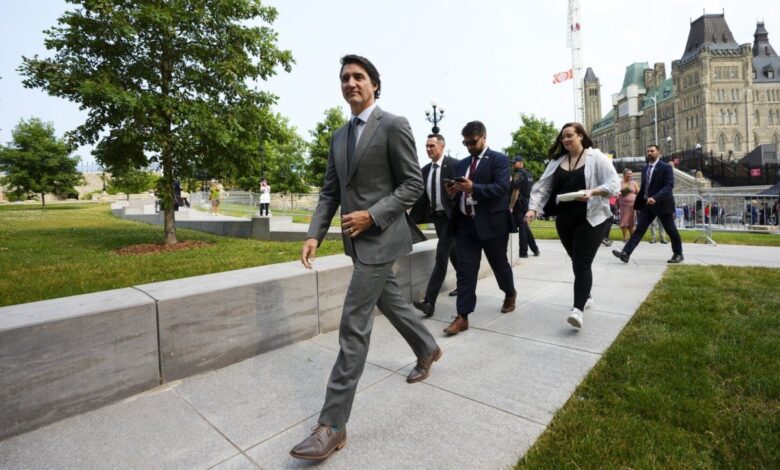Political negotiations on foreign interference investigations are nearing agreement

The federal government appeared on Wednesday poised to launch a public inquiry into foreign interference after months of resisting opposition calls to do so.
Secretary of Intergovernmental Affairs Dominic LeBlanc is leading what the administration called ongoing and productive discussions with the Conservatives, NDP and Bloc Québécois about how to move forward with the quagmire of foreign interference that has clouded the government and this parliamentary assembly for months.
“I expect news about that very, very soon, given the productive nature of those talks,” said government leader Mark Holland on Wednesday afternoon.
The talks are taking place in the aftermath of Parliament’s spring session, which currently ends on Friday.
The public inquiry is on the negotiating table as the government tries to get priority bills passed and avoid the possibility of hundreds of votes on conservative amendments to the government’s key estimates, which set specific amounts to spend on hundreds of government programs.
The government’s customary motion at the end of the session, agreeing to speed up some final pieces of legislation through various stages of debate, was passed by unanimous consent on Wednesday.
But that motion usually includes the date the parties agree to stand.
And not this time, because unless a public inquiry was announced, not all opposition parties would agree to stand up ahead of schedule.
Allegations that the Chinese government has tried to interfere in the results of the last two federal elections have dogged the government since the beginning of the year.
All parties agree that the results of the 2019 and 2021 federal elections have not been compromised, but opposition MPs say a public inquiry into foreign interference attempts is the only way for Canadians to gain confidence in the electoral system.
They voted in favor of three motions – two from the NDP and one from the Conservatives – demanding an investigation.
The NDP’s last motion was passed on May 31.
It sought an inquiry headed by a commissioner unanimously backed by the House of Commons, which would have the power “to review all aspects of foreign interference by all states, including but not limited to the actions of the Chinese, Indian, Iranian and Russian governments.”
According to the NDP motion, that commission would present its report and recommendations before the next federal election.
The Liberals voted against all three motions.
Instead, in March, Trudeau appointed former governor general David Johnston as a “special rapporteur” to review documents, interview some of those involved and decide in late May whether an investigation was warranted.
Johnston’s initial report of May 23 stated that an investigation was not the right thing to do, largely because so much of the material was classified evidence that could not be made public.
But the opposition parties twisted that decision, accusing Johnston of being too closely linked to Trudeau.
Johnston was set to continue his work, holding public hearings and issuing a final report in the fall, but has said he will step down before the end of the month because the work has become too partisan. A final report from Johnston is expected before July.
After Johnston announced his resignation, Trudeau appointed LeBlanc to try and figure out how to proceed with the matter. The Liberals also asked the opposition to put forward their ideas and possible names for someone to lead the effort to investigate foreign interference.
Opposition leaders met last week to try and agree on what they wanted the government to do.
Conservative leader Pierre Poilièvre said this week that his party would only submit names after an official inquiry has been launched.
He also said the government has asked for a meeting with all parties on Thursday.
Trudeau said he is pleased that the opposition parties are willing to work together to find a consensus, but said he is wary of “how the opposition parties have behaved” towards Johnston in recent months.
“We want to make sure everyone agrees on the framework, the people who will participate and we don’t want to fall back into personal attacks, which will undermine Canadians’ confidence in their institutions,” he said in French.
Bloc leader Yves-François Blanchet said Wednesday morning that he hoped an agreement on the investigation could even be hours away.
Blanchet suggested that the investigation focus on allegations that the Chinese government had interfered in Canadian democracy, but not be limited to that topic.
He said he believed the bloc and Liberals would at least agree on the details of the inquiry and that it could also be supported by the NDP and Conservatives.
NDP leader Jagmeet Singh said on Wednesday he was “not confident in the timing” of an agreement on an inquiry, but said he had seen more openness from the government to call one.
“We’re not going to let the pressure go,” he said in an interview with The Canadian Press. “We are hopeful, but cautiously hopeful.”



